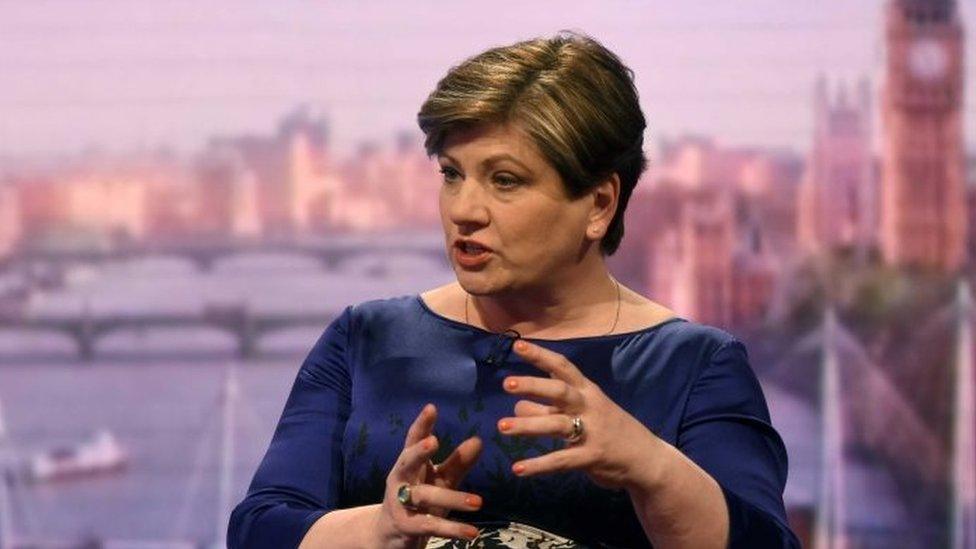Theresa May should apologise to ex-colonies - Thornberry
- Published

Labour is urging Theresa May to apologise to other Commonwealth leaders for past failures by the UK government.
Shadow Foreign Secretary Emily Thornberry said the PM should correct "historic mistakes" in the run up to next month's Commonwealth summit.
She said a 2006 apology by David Cameron for the Tory government's refusal to impose sanctions on South Africa over apartheid was not enough.
The PM should also right the "historic wrong" of the Chagos Islands, she said.
Last year, 33 Commonwealth countries, led by Mauritius, voted to refer Britain to the International Court of Justice over the Chagos Islands in the Indian Ocean.
The territory has been a contentious issue for years, with Labour leader Jeremy Corbyn frequently highlighting the islanders' plight.
Most of the 1,500 residents were deported so that the largest island, Diego Garcia, could be leased to the US for a strategic airbase in 1971.
Writing in The House magazine, Ms Thornberry said Mrs May should start next month's Commonwealth Heads of Government meeting in London by "saying sorry to the other heads of government, not just for the wrong done to the Chagos Islanders, but for the actions of Margaret Thatcher in the 1980s".
She added: "Back then, it was nothing less than our duty to take part in collective action against South Africa, and heed the urgent calls from our Commonwealth partners for the unified imposition of sanctions. But instead, the Thatcher government dismissed them.
"The last Prime Minister, David Cameron, apologised directly to Nelson Mandela in 2006 for his party's refusal to impose sanctions, but that did not go far enough.
"I believe Theresa May and the Conservative government in Britain also owe an apology to the Commonwealth as a whole - and indeed Her Majesty The Queen - for ignoring the efforts of every other member 30 years ago to bring apartheid to an end."
She said correcting that "historic mistake" would "send a wider signal to our Commonwealth cousins that we in the UK truly recognise that the days are gone when our union was described - in colonial terms - as the 'British Commonwealth'.
"This great institution does not exist for the benefit of Britain, and even less simply to make up for the post-Brexit hole in our trading balance sheet," she said.
"It exists for the collective benefit of all its members, and the wider benefit of the world."